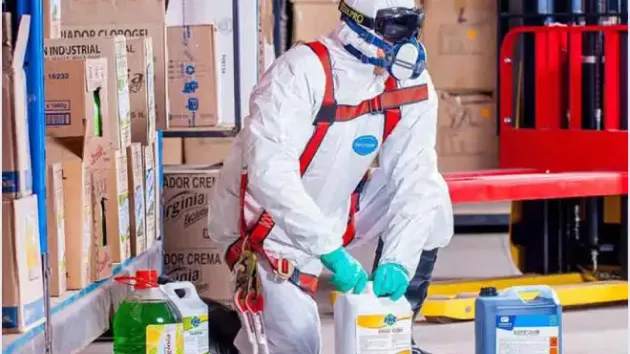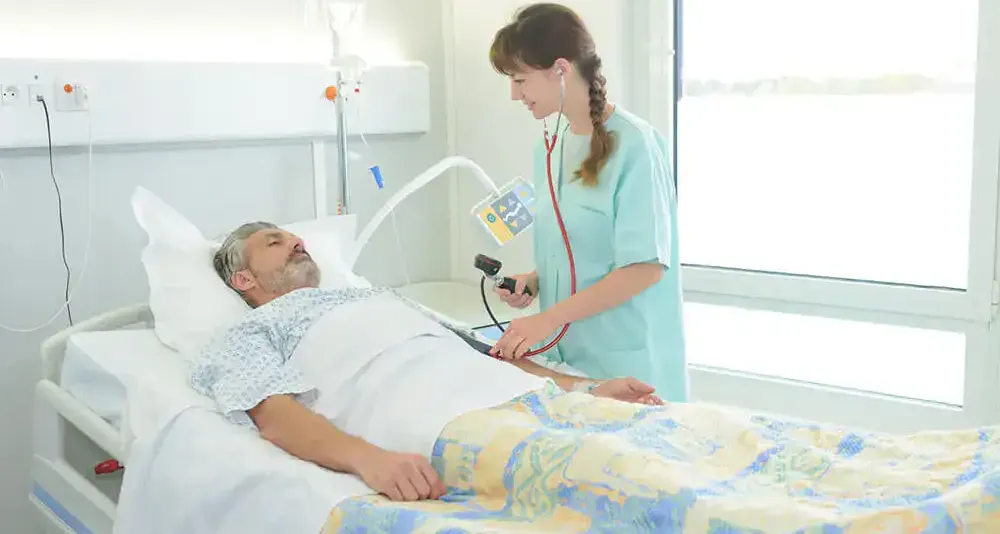Introduction
Therapists who work in large rehabilitation centers are exposed to a variety of occupational hazards. These often range from contagious diseases that might be transmitted on a human-to-human pathway to musculoskeletal injuries and even exposure to hazardous chemical substances. With appropriate safety training, therapy support employees can prepare for these risks and avoid them altogether.Potential Hazards
The most pressing occupational risks for workers in therapy support are:
Exposure to Pathogens.
Regardless of where they work, therapists come in contact with a significant number of people on a regular basis. The risk of exposure is multiplied for professionals in rehabilitation centers, as they will often interact with tens of patients that might have contagious illnesses. As such, they are at an increased danger to contract an infectious disease that is viral, fungal, or bacterial in nature. While a significant number of pathogens are bloodborne, some of them are also airborne, which means workers have to be aware of both risks and act accordingly.Dangerous Chemicals.
Although employees in therapy support don’t have to interact with dangerous substances as part of their responsibilities, they work in environments where solvents, sealants, and fumes from the latter are likely to be found. Industrial detergents are one of the most frequently encountered hazardous compounds in this sector and everyone working around them must be made aware of their presence. While short-term exposure to solvents usually manifests as dizziness and irritation of the skin and/or airways, long-term contacts or large exposures are known to cause significant brain damage.Ergonomic Risks.
Therapists are required to sit down for a significant part of their job. Sometimes, they may also have to help carry patients, as well as heavy equipment. In all of these instances, improper posture can easily lead to musculoskeletal disorders. The latter are amplified by the stress and fatigue resulting from the nature of their work.Physical Hazards.
The machinery, equipment, and general environment in rehabilitation centers might give off potentially dangerous levels of noise. Noise levels in hospitals are also a major issue for patients themselves, who will have to endure delayed rehabilitation because of the latter. To prevent unnecessary psychological strain, workers must be aware of these physical hazards and deal with them appropriately.
Incident Prevention
Before having the chance to interact with patients, therapy support workers must undergo a long and arduous training process that spans over many years. Appropriate safety courses will help mitigate some of the occupational hazards they will be exposed to and enable them to interact with patients in a way that preserves the health of both parties.
Particularly for therapy support employees in rehabilitation centers, personal protective equipment is a matter of public health. If they come in contact with a contagious disease without knowing it, there is always the danger of spreading it to others.
Even though health care institutions generally have a series of procedures in place to diminish the likelihood of their workers coming in contact with hazardous substances, accidental exposures continue to happen on a regular basis. To prevent the latter from turning into a serious health concern, appropriate safety training will teach employees what to do in case of an emergency.
Recommended Safety Courses



What You Can Do to Stay Safe
For workers in therapy support, the best way to maintain your health is to undergo the appropriate safety training, follow institutional protocols, and immediately report when you have come in contact with hazardous chemicals, infected equipment, or blood. Although accidents can happen in any medical institution, the frequency of human error is much smaller in cases where people are adequately trained.
Employers in Canada are legally required to provide safety training for their workers, which is why many therapy support candidates acquire their certification prior to their interview. This maximizes peoples’ chances of getting hired, while also helping them be better prepared for their new jobs.
For a more comprehensive list of safety courses best suited for your line of work, please visit our Pharmaceuticals and Healthcare industry page.



